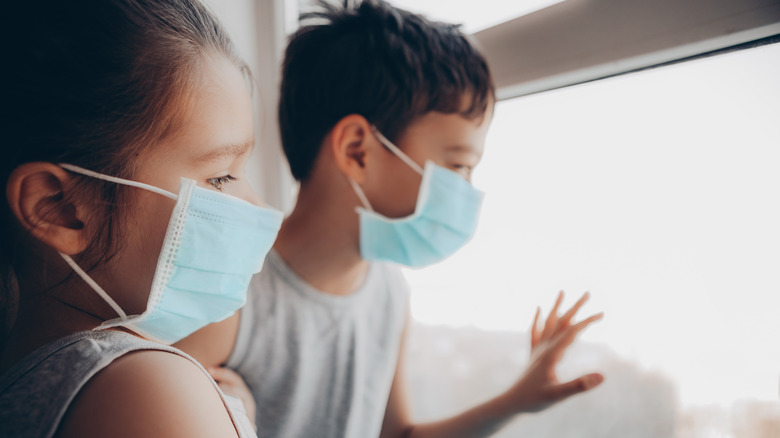How Long COVID Can Affect Children
Research reveals that as many as 10% of children diagnosed with COVID-19 are likely to experience long-haul symptoms following infection, reports CNN. For long-haulers, symptoms can include extreme fatigue, stomach pain, cough, and respiratory issues, yet they do not develop right away, according to the US Centers for Disease Control and Prevention (CDC). Rather, signs often don't begin to emerge until at least four weeks after the initial infection.
While these symptoms are commonly seen in adults, healthcare providers have begun to observe marked differences in the long-haul symptoms reported by children. "It's startling how many of these children present and have a range of symptoms that we haven't fully appreciated," Dr. Jeffrey Kahn, chief of the division of pediatric infectious disease at UT Southwestern Medical Center, told CNN. "Some are coming in with heart failure after asymptomatic [COVID-19] infections."
With long-COVID pediatric clinics now operating in multiple states (via the Association of American Medical Colleges), physicians are tailoring treatment methods to meet the specific needs of kids. Some doctors are implementing everything from acupuncture to massage therapy to mindfulness practices (via CNN).
Symptoms and treatment of long COVID in children
Of the overlap observed between adults and children, excessive fatigue appears to be the predominant shared symptom of long-haul COVID between both populations. It's so much so that some doctors have seen pediatric patients unable to attend school, struggling to meet the emotional demands of socializing, or becoming exhausted after sitting and watching television or playing video games (via CNN). "It's like they have one bucket of energy ... Every single thing they do takes energy, and once that bucket is empty, that's it," Dr. Amy Edwards, operator of the pediatric long COVID clinic at UH Rainbow Babies & Children's Hospital, explained to CNN.
Among the physical symptoms exhibited by children, doctors report a variety including severe headaches, brain fog, heart palpitations, and dizziness, with one doctor reporting a pediatric patient losing hand function, per CNN. However, with medical test results often coming back normal, this has led to the misdiagnosis or dismissal of child patients. "[We scope] them, and their GI tracts are normal. I do a big immune workup, and their immune system appears normal. Everything 'looks normal,' but the kids aren't functioning like normal," Dr. Edwards explained to CNN.
As per the CDC, treatment methods for long COVID in children currently center around improving their quality of life through symptom management. To do so, doctors are working to address children's physical medical needs in addition to implementing energy conservation techniques (via CNN).


